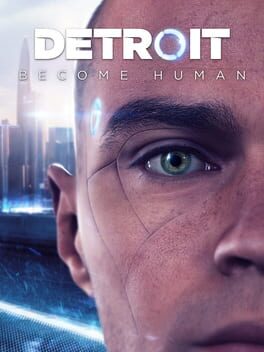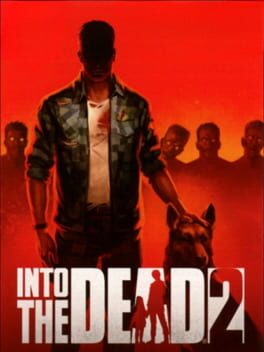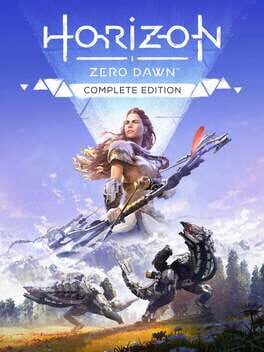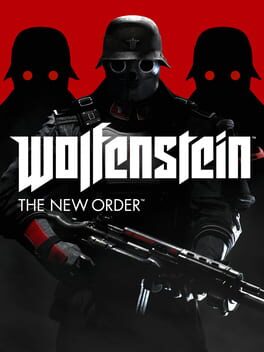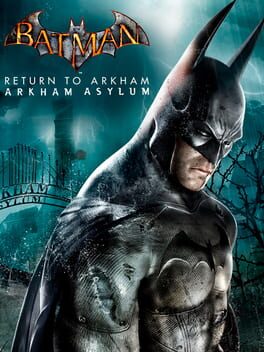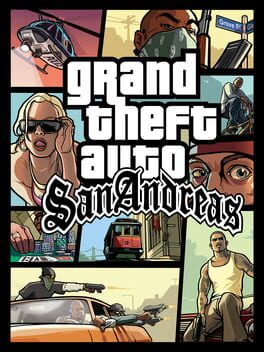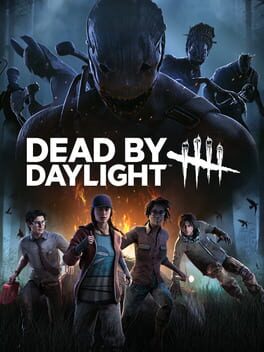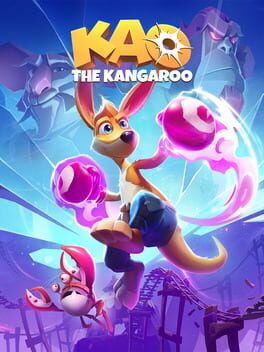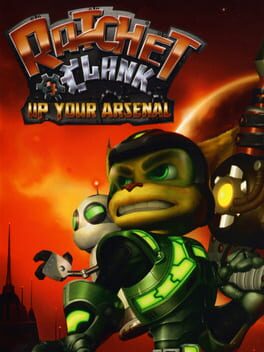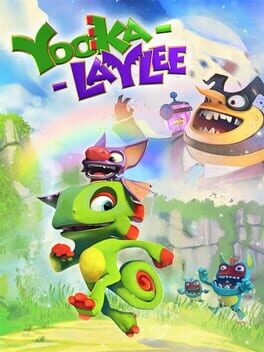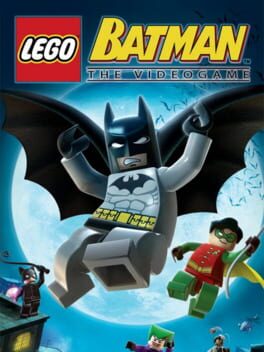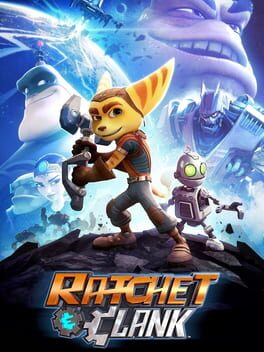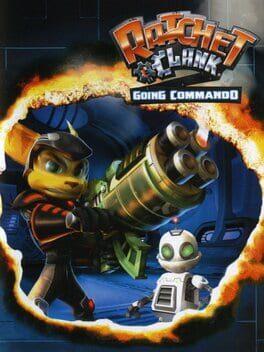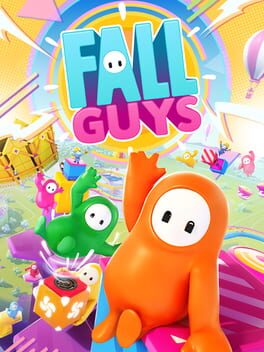sadisticservant
Detroit: Become Human suffers from the same problem as Heavy Rain, where the game begins with you performing some really dull and mundane tasks that simply could have been a cutscene. And while the story may not immediately grip you even after all of the mundane events, once the action finally picks up, it turns into one of the strongest and most emotionally investing narratives you'll ever witness in modern video games.
Each of the protagonists' individual plots is masterfully executed, and this is further enhanced by their amazing performances. The chemistry between Connor and Hank is simply incredible and is often amusing to watch due to Connor's innocence. Kara's role in the plot, meanwhile, carries the most emotional weight, although this does lead to her appearing as though she has little significance to the larger story. Marcus appears to have the least engaging chapters of the three, but he more than makes up for it during the game's middle section.
Sure, the symbolism and message that Detroit: Become Human was trying to convey were not at all subtle, but they nonetheless made an impact despite some inconsistencies here and there.
Meanwhile, QTEs and branching decisions make up the majority of the gameplay. Its strongest aspect would probably be when it would abruptly switch to a different character while you were playing as the other, merging two stories together. These situations force you to pick a character side, leading to some very difficult choices, such as when you are playing as Kara, trying to save the little girl Alice, when all of a sudden the game switches to Connor. Should I let Connor complete his mission or let Kara and Alice escape to freedom? Moments like this left me unsure of which character to support.
I do wish, though, for some of the dialogue options to be more direct, as they can often be confusing and would sometimes lead to a completely unexpected dialogue that I never wanted to say.
Detroit: Become Human engrossed me with its characters and world that I was so afraid to make a single mistake or even bad decisions. In the end, I was able to achieve the best endings for all of the characters in my first playthrough. However, it did make me want to not play a second time because I'm afraid to ruin the happiness that the characters had achieved.
This is a must-play not only for casual gamers but for everyone!
Each of the protagonists' individual plots is masterfully executed, and this is further enhanced by their amazing performances. The chemistry between Connor and Hank is simply incredible and is often amusing to watch due to Connor's innocence. Kara's role in the plot, meanwhile, carries the most emotional weight, although this does lead to her appearing as though she has little significance to the larger story. Marcus appears to have the least engaging chapters of the three, but he more than makes up for it during the game's middle section.
Sure, the symbolism and message that Detroit: Become Human was trying to convey were not at all subtle, but they nonetheless made an impact despite some inconsistencies here and there.
Meanwhile, QTEs and branching decisions make up the majority of the gameplay. Its strongest aspect would probably be when it would abruptly switch to a different character while you were playing as the other, merging two stories together. These situations force you to pick a character side, leading to some very difficult choices, such as when you are playing as Kara, trying to save the little girl Alice, when all of a sudden the game switches to Connor. Should I let Connor complete his mission or let Kara and Alice escape to freedom? Moments like this left me unsure of which character to support.
I do wish, though, for some of the dialogue options to be more direct, as they can often be confusing and would sometimes lead to a completely unexpected dialogue that I never wanted to say.
Detroit: Become Human engrossed me with its characters and world that I was so afraid to make a single mistake or even bad decisions. In the end, I was able to achieve the best endings for all of the characters in my first playthrough. However, it did make me want to not play a second time because I'm afraid to ruin the happiness that the characters had achieved.
This is a must-play not only for casual gamers but for everyone!
2017
I still remember playing the original Into the Dead game when I was a kid and loving its eerie atmosphere and more or less helpful dog companion system. Knowing that this sequel had included a story mode, I was more than excited to play through it, it's a shame though that this game is nothing more than your typical greedy mobile game.
The game's star attraction is its story mode, which spans multiple chapters and is divided into small segments. And although it does start promising, by your 3rd run with the game, you'll already get bored with it. Story events only occur at the start and end of a run and most of the cutscenes don't provide any development on the plot or characters either. It mostly just consists of dull and generic dialogues, making for a pretty unsubstantial campaign.
It could have greatly benefited from environmental storytelling yet unfortunately, there's none to be seen here. Most of the areas you run through are just boring fields of grass with little to no distinction from each other.
Funnily enough, the bonus stories that the game provided have a far better story and more meaningful cutscenes than those seen in the main campaign itself.
Its gameplay doesn't fair much better either as it's littered with your typical mobile game greediness. Although at the start, most of the microtransactions felt more like an option, as you go further into the campaign, the powerful weapons that you own are rendered useless because they can barely kill regular zombies. The only way to remedy this is by upgrading your weapon using real-world money.
Killing zombies became such a difficult task that the game became frustrating to finish as a result, not helped by its lengthy but meatless campaign.
This is a game to avoid.
The game's star attraction is its story mode, which spans multiple chapters and is divided into small segments. And although it does start promising, by your 3rd run with the game, you'll already get bored with it. Story events only occur at the start and end of a run and most of the cutscenes don't provide any development on the plot or characters either. It mostly just consists of dull and generic dialogues, making for a pretty unsubstantial campaign.
It could have greatly benefited from environmental storytelling yet unfortunately, there's none to be seen here. Most of the areas you run through are just boring fields of grass with little to no distinction from each other.
Funnily enough, the bonus stories that the game provided have a far better story and more meaningful cutscenes than those seen in the main campaign itself.
Its gameplay doesn't fair much better either as it's littered with your typical mobile game greediness. Although at the start, most of the microtransactions felt more like an option, as you go further into the campaign, the powerful weapons that you own are rendered useless because they can barely kill regular zombies. The only way to remedy this is by upgrading your weapon using real-world money.
Killing zombies became such a difficult task that the game became frustrating to finish as a result, not helped by its lengthy but meatless campaign.
This is a game to avoid.
Horizon Zero Dawn is a game that I never expected myself to enjoy, let alone love. The RPG mechanics, massive open world, and crushing difficulty are ingredients for games that I never manage to finish, however, I found that all of these made the game stand out from the rest and hooked me from start to finish.
Where do I even begin with this review!? Well, I guess let's start with the gameplay, which is a mix of third-person shooter and RPG mechanics. What I love about it is just how accessible it is, this is further true in my case as I used the same starting weapon from start to finish of the story, and it never felt like the game was punishing me for not taking advantage of the more powerful weapons available. Rather, the difficulty comes from the way you approach the encounters with many of the mechanic beasts that roam the world of Horizon.
In fact, in my first 10 hours of the game, I was so afraid of fighting any of the adversaries, even the low-level ones. But I used every death and encounter as a learning experience and ended up being hooked on what the game has to offer.
In most cases of open-world games, the map often only serves as a setting rather than an actual living place. However, in Horizon, it really does feel like an essential part of the overall experience, as it's more than just a place full of jaw-dropping vistas but rather serves as a giant playground for mechanical beast mayhem.
I also found the game's story to be such an engaging experience, made even better with it's strong world-building and touching ending. Even its side quest provided a fun diversion from the larger tale.
I had simply never played anything like Horizon Zero Dawn. Sure, it can be a bit clunky at times with its animations but considering the game's massive offering, it doesn't really hamper it that much.
Where do I even begin with this review!? Well, I guess let's start with the gameplay, which is a mix of third-person shooter and RPG mechanics. What I love about it is just how accessible it is, this is further true in my case as I used the same starting weapon from start to finish of the story, and it never felt like the game was punishing me for not taking advantage of the more powerful weapons available. Rather, the difficulty comes from the way you approach the encounters with many of the mechanic beasts that roam the world of Horizon.
In fact, in my first 10 hours of the game, I was so afraid of fighting any of the adversaries, even the low-level ones. But I used every death and encounter as a learning experience and ended up being hooked on what the game has to offer.
In most cases of open-world games, the map often only serves as a setting rather than an actual living place. However, in Horizon, it really does feel like an essential part of the overall experience, as it's more than just a place full of jaw-dropping vistas but rather serves as a giant playground for mechanical beast mayhem.
I also found the game's story to be such an engaging experience, made even better with it's strong world-building and touching ending. Even its side quest provided a fun diversion from the larger tale.
I had simply never played anything like Horizon Zero Dawn. Sure, it can be a bit clunky at times with its animations but considering the game's massive offering, it doesn't really hamper it that much.
I've only ever played a few FPS games in my life, so within my first couple of hours with Wolfenstein: The New Order, all I did was adjust to the game's mechanics. Never did I expect to end up completely hooked on this crazy game.
Before starting with what I loved about The New Order, let's start with a few minor problems that I've encountered within the very first hour of the game, and that's how nauseating it feels and looks while playing. The head bobbing and running speed were so absurdly fast and aggressive that the game actually gave me motion sickness. I never even thought it was possible for me to get sick while playing. I almost gave up with the game entirely despite how fun it is, although I did persevere and managed to get used to all of the motion around the 3 hour mark.
Also, in IGN's review of the game, it was mentioned just how tedious picking up items in the game was, and I definitely agree. There are so many items to pick up, from med-kits, armor, ammunition, although my main complaint about it is that many of these items aren't that easy to pick up because the icon would constantly disappear, and when I tried to look in the same direction where it did appear, it wouldn't always guarantee to show up. I can't quite put my finger on the exact problem, but then again, neither can BJ.
But now that I've talked about some of the issues I've faced, it's time to talk about what I actually loved about The New Order.
With such a dark concept, I completely expected the game to be nothing more than a serious shooter like Call of Duty, but in fact, The New Order doesn't take itself too seriously. It often takes you to numerous over-the-top set pieces, with the most absurd being the moon! The freaking moon!
The gameplay was also simply incredible! Allowing for different ways to approach combat encounters, from stealth to even gun-blazing. Never did it feel like the game was becoming tedious due to how open the approach was. I just wish that the game never takes away your weapons in each chapter.
I also managed to stumble across the original Wolfenstein easter egg, which was such a delight to play through!
The game also offers a second campaign, although I heard it only has a few minor changes to the story. But this doesn't stop me from wanting to play the game again!
Before starting with what I loved about The New Order, let's start with a few minor problems that I've encountered within the very first hour of the game, and that's how nauseating it feels and looks while playing. The head bobbing and running speed were so absurdly fast and aggressive that the game actually gave me motion sickness. I never even thought it was possible for me to get sick while playing. I almost gave up with the game entirely despite how fun it is, although I did persevere and managed to get used to all of the motion around the 3 hour mark.
Also, in IGN's review of the game, it was mentioned just how tedious picking up items in the game was, and I definitely agree. There are so many items to pick up, from med-kits, armor, ammunition, although my main complaint about it is that many of these items aren't that easy to pick up because the icon would constantly disappear, and when I tried to look in the same direction where it did appear, it wouldn't always guarantee to show up. I can't quite put my finger on the exact problem, but then again, neither can BJ.
But now that I've talked about some of the issues I've faced, it's time to talk about what I actually loved about The New Order.
With such a dark concept, I completely expected the game to be nothing more than a serious shooter like Call of Duty, but in fact, The New Order doesn't take itself too seriously. It often takes you to numerous over-the-top set pieces, with the most absurd being the moon! The freaking moon!
The gameplay was also simply incredible! Allowing for different ways to approach combat encounters, from stealth to even gun-blazing. Never did it feel like the game was becoming tedious due to how open the approach was. I just wish that the game never takes away your weapons in each chapter.
I also managed to stumble across the original Wolfenstein easter egg, which was such a delight to play through!
The game also offers a second campaign, although I heard it only has a few minor changes to the story. But this doesn't stop me from wanting to play the game again!
2007
Persona 3 ranks among the best RPG games I've ever played, but it does have one significant flaw that turned what would have otherwise been an essential game into a repetitive grind that almost made me want to abandon it.
Unlike other RPG games, Persona 3 is divided into two segments: daily school life and dungeon crawling. Daily school life plays out just as you expect it to, with you managing your character's personal stats and relationships with other residents of Iwatodai, a feature called Social Links.
This feature is arguably one of the game's strongest aspects, with each of the social links delivering gripping sub-plots about many of the NPCs in the game. Not only that, but it also provides a gameplay bonus that is beneficial in combat.
Although, of course, the social link system is still far from perfect, with many of the sub-plots never really going anywhere and being dragged on for so many meetings. I especially didn't like how you're often forced to pick the option that the characters only want to hear, even if doing so will result in them taking advantage of you or increasing their terrible behavior.
Meanwhile, the combat segment of the game, which is the dungeon crawling, is incredibly fun but tedious due to the lack of variety in the environment. Tartarus, the dungeon in the game, provides little to no variation for both events and structure outside of the full moon segments. Essentially, what you experience in your first month in the game is pretty much what you will be experiencing throughout the remaining duration of the game. After the second month, I was already feeling burned out with the game, and I couldn't bear to continue anymore. In fact, before I played FES, I was playing the portable version, but I never got to finish it due to how dull Tartarus was. I did try to replay it again from the start, and I was able to make it to the beach arc but ended up abandoning it again because I was getting bored. It took me about six real-life months just to be able to finish FES, and it's because I needed to take a break from all of the tediousness every time. The only reason I continued playing the game until the end was partly due to its strong story and characters.
The AI for your teammates doesn't fare that well either, with them (and by them, I'm mostly talking about Mitsuru) preferring to use every other action except for the one needed the most in the situation. This leads to so many frustrating moments and could sometimes even result in the entire party's death. There is an option to command them, but still, it suffers from poor management of actions by the AI.
Despite this, though, I still liked all of the cast of characters and fell in love with each of them by the end. The game even managed to put me on the edge of tears with its touching ending.
I'm really hoping that the remake will fix Tartarus so that more people will get to experience the beauty of Persona 3.
Unlike other RPG games, Persona 3 is divided into two segments: daily school life and dungeon crawling. Daily school life plays out just as you expect it to, with you managing your character's personal stats and relationships with other residents of Iwatodai, a feature called Social Links.
This feature is arguably one of the game's strongest aspects, with each of the social links delivering gripping sub-plots about many of the NPCs in the game. Not only that, but it also provides a gameplay bonus that is beneficial in combat.
Although, of course, the social link system is still far from perfect, with many of the sub-plots never really going anywhere and being dragged on for so many meetings. I especially didn't like how you're often forced to pick the option that the characters only want to hear, even if doing so will result in them taking advantage of you or increasing their terrible behavior.
Meanwhile, the combat segment of the game, which is the dungeon crawling, is incredibly fun but tedious due to the lack of variety in the environment. Tartarus, the dungeon in the game, provides little to no variation for both events and structure outside of the full moon segments. Essentially, what you experience in your first month in the game is pretty much what you will be experiencing throughout the remaining duration of the game. After the second month, I was already feeling burned out with the game, and I couldn't bear to continue anymore. In fact, before I played FES, I was playing the portable version, but I never got to finish it due to how dull Tartarus was. I did try to replay it again from the start, and I was able to make it to the beach arc but ended up abandoning it again because I was getting bored. It took me about six real-life months just to be able to finish FES, and it's because I needed to take a break from all of the tediousness every time. The only reason I continued playing the game until the end was partly due to its strong story and characters.
The AI for your teammates doesn't fare that well either, with them (and by them, I'm mostly talking about Mitsuru) preferring to use every other action except for the one needed the most in the situation. This leads to so many frustrating moments and could sometimes even result in the entire party's death. There is an option to command them, but still, it suffers from poor management of actions by the AI.
Despite this, though, I still liked all of the cast of characters and fell in love with each of them by the end. The game even managed to put me on the edge of tears with its touching ending.
I'm really hoping that the remake will fix Tartarus so that more people will get to experience the beauty of Persona 3.
The Arkham Trilogy is often considered some of the best games of all time, so I was really looking forward to experiencing these games, despite not being a huge superhero fan. But after playing Arkham Asylum, I might just become one.
Before I start my review, I should say that I haven't really consumed any Batman media before, aside from the dialogue-less Lego game. Not the comics, series, or even movies. So this will be my proper introduction to the world of Gotham, and what an introduction it was.
At first, I did find it quite difficult to understand the story, not because of its complexity but rather because of how it introduces its characters. Some, if not all of them, are presented as though you already know them even before the story starts.
There is a strong sense of atmosphere throughout the entire island, making it very easy to get immersed in the shoes of our caped crusader. It was also incredible to witness the progression, or in this case, the slow destruction of the island and Batman's suit, as you progressed through the game. However, it also does have a few deliberate design decisions that work against what its trying to establish and feel outdated by today's standards.
Way too much time was spent in detective mode, obscuring the incredible locations and atmosphere of the game.
I also found controlling Batman to be quite stiff and awkward, due to the jump and dodge being mapped to the same button. This often leads to so many moments where Batman would perform a roll instead of a jump, making the Scarecrow segments frustating due to its trial and error platforming
Also, this is probably just me but, while some may have stellar voice acting, I can't help but feel off whenever I hear Batman speak. Every single line of his are delivered in such monotone fashion, not helped by the fact that his character interactions has no proper animations, making him look like a stiff robot trying to imitate emotion.
However, after quite some time, I did manage to overlook some of its odd quirks and just enjoyed the game for what it was—a solid action game with a few problems.
Before I start my review, I should say that I haven't really consumed any Batman media before, aside from the dialogue-less Lego game. Not the comics, series, or even movies. So this will be my proper introduction to the world of Gotham, and what an introduction it was.
At first, I did find it quite difficult to understand the story, not because of its complexity but rather because of how it introduces its characters. Some, if not all of them, are presented as though you already know them even before the story starts.
There is a strong sense of atmosphere throughout the entire island, making it very easy to get immersed in the shoes of our caped crusader. It was also incredible to witness the progression, or in this case, the slow destruction of the island and Batman's suit, as you progressed through the game. However, it also does have a few deliberate design decisions that work against what its trying to establish and feel outdated by today's standards.
Way too much time was spent in detective mode, obscuring the incredible locations and atmosphere of the game.
I also found controlling Batman to be quite stiff and awkward, due to the jump and dodge being mapped to the same button. This often leads to so many moments where Batman would perform a roll instead of a jump, making the Scarecrow segments frustating due to its trial and error platforming
Also, this is probably just me but, while some may have stellar voice acting, I can't help but feel off whenever I hear Batman speak. Every single line of his are delivered in such monotone fashion, not helped by the fact that his character interactions has no proper animations, making him look like a stiff robot trying to imitate emotion.
However, after quite some time, I did manage to overlook some of its odd quirks and just enjoyed the game for what it was—a solid action game with a few problems.
(Review in Progress)
This is not only the GTA game, but THE game, that defined my childhood. And I'm happy to say that it's still fun as ever.
San Andreas is one massive city to explore, twice the size of Liberty and Vice City combined. Every town you visit, there's always an activity to partake in, and every nook and cranny holds a collectible just waiting to be discovered.
There's also a wide variety of missions to do. No mission will feel the same as the previous ones.
While I never really saw any use for some of the RPG-esque mechanics that the game offers, they do play a huge part in making the world feel much more alive.
The game holds a strong lineup of radio stations, from country music to rock. Though while it certainly isn't as lively as Vice City's stations, what's here is still incredible.
This is not only the GTA game, but THE game, that defined my childhood. And I'm happy to say that it's still fun as ever.
San Andreas is one massive city to explore, twice the size of Liberty and Vice City combined. Every town you visit, there's always an activity to partake in, and every nook and cranny holds a collectible just waiting to be discovered.
There's also a wide variety of missions to do. No mission will feel the same as the previous ones.
While I never really saw any use for some of the RPG-esque mechanics that the game offers, they do play a huge part in making the world feel much more alive.
The game holds a strong lineup of radio stations, from country music to rock. Though while it certainly isn't as lively as Vice City's stations, what's here is still incredible.
2016
I used to have a love/hate relationship with this game due to its premise that pits every horror icon in the ultimate slasher fantasy but the numerous game breaking bugs definitely made the game frustrating and unplayable.
Now, I tried going back in the game and was surprised just how better it is than before. There are fewer bugs than ever and more iconic licensed characters to play as.
I definitely recommend this to anyone looking for the definitive slasher game.
Now, I tried going back in the game and was surprised just how better it is than before. There are fewer bugs than ever and more iconic licensed characters to play as.
I definitely recommend this to anyone looking for the definitive slasher game.
2022
The platformer genre is a favorite of mine, thanks largely to its wide array of colorful settings and characters. This reboot of the 2000 game of the same name manages to fulfill what makes the genre such an entertaining piece of media, but with a few stumbles that make it far from a worthy experience for everyone.
First of all, Kao the Kangaroo offers two largely different experiences: one that is lively and fun, while the other is cringe-inducing.
The best parts of the game is, of course, its gameplay that provides a childlike wonder and enjoyment. This is further true thanks to its sampling of gameplay mechanics from the Crash Bandicoot remakes and gorgeous artstyle of the remakes of Spyro the Dragon trilogy.
And although there are only a small amount of worlds and levels to explore, they all take around 15 to 20 minutes to finish, and there are also some hidden collectibles and secret challenges to discover as well.
However, despite the fun nature of the gameplay, the story and voice acting's terrible quality take away from what would have otherwise been a promising platformer.
Many games from previous years have offered an immersive experience that rivals that of seen in movies, so it came as such a surprise to hear just how terrible all of the voice actors were in this game, not helped by just how terrible the script is. The jokes, if you could call it that, are references, but some of them are so out of date that I don't even know what they are referencing, and when they do reference something recent, it ends up being cringy. The delivery is also so terrible that most jokes don't land at all.
I haven't even started with its numerous technical issues, from severe pop-ins to a lack of animations for environments and taking damage.
It's also so weird how, literally, not 5 seconds after the credits rolled and you talked to Kao's mother, she mentioned how your missing father and sister still haven't returned. The endgame content is so underwhelming that the developers didn't even bother changing the characters' dialogue after finishing the game.
Kao the Kangaroo is a platformer game with a lot of potential but needs a little more time in the oven if it wants to stand between its contemporaries.
First of all, Kao the Kangaroo offers two largely different experiences: one that is lively and fun, while the other is cringe-inducing.
The best parts of the game is, of course, its gameplay that provides a childlike wonder and enjoyment. This is further true thanks to its sampling of gameplay mechanics from the Crash Bandicoot remakes and gorgeous artstyle of the remakes of Spyro the Dragon trilogy.
And although there are only a small amount of worlds and levels to explore, they all take around 15 to 20 minutes to finish, and there are also some hidden collectibles and secret challenges to discover as well.
However, despite the fun nature of the gameplay, the story and voice acting's terrible quality take away from what would have otherwise been a promising platformer.
Many games from previous years have offered an immersive experience that rivals that of seen in movies, so it came as such a surprise to hear just how terrible all of the voice actors were in this game, not helped by just how terrible the script is. The jokes, if you could call it that, are references, but some of them are so out of date that I don't even know what they are referencing, and when they do reference something recent, it ends up being cringy. The delivery is also so terrible that most jokes don't land at all.
I haven't even started with its numerous technical issues, from severe pop-ins to a lack of animations for environments and taking damage.
It's also so weird how, literally, not 5 seconds after the credits rolled and you talked to Kao's mother, she mentioned how your missing father and sister still haven't returned. The endgame content is so underwhelming that the developers didn't even bother changing the characters' dialogue after finishing the game.
Kao the Kangaroo is a platformer game with a lot of potential but needs a little more time in the oven if it wants to stand between its contemporaries.
In my first few hours with the game, I found Up Your Arsenal to be nothing more than a disappointing entry in an otherwise strong franchise, as it seemed to have removed more features rather than improved upon what had been set up by its predecessors. However, it didn't take long for the game to change my mind.
Up Your Arsenal features some of the best, well, features that the franchise has ever seen. From the action, platforming, weapons, and many many more!
Although platforming has been relegated to being an optional obstacle that the player has to go through as multiple routes have been removed, this game features some of the most challenging platforming in the trilogy.
And just when I thought Going Commando had finally managed to make the Clank segments finally fun, here comes Up Your Arsenal which makes those segments even more enjoyable to play through. It's a shame, though, that the puzzles remains as mind numbingly terrible.
Although, of course, Going Commando still had more features, I do think that Up Your Arsenal is slightly better than what came before it due to its sheer enjoyment.
Up Your Arsenal features some of the best, well, features that the franchise has ever seen. From the action, platforming, weapons, and many many more!
Although platforming has been relegated to being an optional obstacle that the player has to go through as multiple routes have been removed, this game features some of the most challenging platforming in the trilogy.
And just when I thought Going Commando had finally managed to make the Clank segments finally fun, here comes Up Your Arsenal which makes those segments even more enjoyable to play through. It's a shame, though, that the puzzles remains as mind numbingly terrible.
Although, of course, Going Commando still had more features, I do think that Up Your Arsenal is slightly better than what came before it due to its sheer enjoyment.
2017
Yooka-Laylee is a colorful throwback to collect-a-thon games of the past. However, it seems to forget to bring innovation, making the experience a bit tedious in the process.
While it seems to have been inspired by Rare's classic, Banjo-Kazooie, I never actually played it yet to make a direct comparison, although I did find Yooka-Laylee's gameplay style to be similar to Jak & Daxter's, another collect-a-thon game.
From collecting many of the game's precious rewards, currency, and even explorations to its huge and sprawling worlds, the two games are one for one.
What's surprising here is that a game made in 2002 somehow approaches the collect-a-thon genre, much better than a game made in 2017, as it lets you keep track of which side activities you still need to clear up. Instead, in Yooka-Laylee, there's a lot of wandering around aimlessly, as it's difficult to figure out which activity you've already finished.
This is further made challenging due to the game's massive and complicated open levels that's easy to get lost in. The game desperately needs a map or mini-map of sorts where you can see where you are, and the objective that still needs to be done.
The game also keeps making jokes about how this is the new game generation and that old games should update themselves, but funnily enough, this game never felt modern.
Many of the abilities that you learn are also quite underutilized. You could bypass many puzzle challenges with the use of your wide array of abilities, but the game limits you to using only a specific ability, essentially removing experimentation.
The final boss is also an awful encounter as it demands you to fight Capital B's 7 phases without any health pickups and unskippable cutscenes. Truly awful and tedious.
While most of my comments about the game may have all been negative, I did quite enjoy the game. But the lack of contemporary changes to the genre is just not that easy to shrug off.
While it seems to have been inspired by Rare's classic, Banjo-Kazooie, I never actually played it yet to make a direct comparison, although I did find Yooka-Laylee's gameplay style to be similar to Jak & Daxter's, another collect-a-thon game.
From collecting many of the game's precious rewards, currency, and even explorations to its huge and sprawling worlds, the two games are one for one.
What's surprising here is that a game made in 2002 somehow approaches the collect-a-thon genre, much better than a game made in 2017, as it lets you keep track of which side activities you still need to clear up. Instead, in Yooka-Laylee, there's a lot of wandering around aimlessly, as it's difficult to figure out which activity you've already finished.
This is further made challenging due to the game's massive and complicated open levels that's easy to get lost in. The game desperately needs a map or mini-map of sorts where you can see where you are, and the objective that still needs to be done.
The game also keeps making jokes about how this is the new game generation and that old games should update themselves, but funnily enough, this game never felt modern.
Many of the abilities that you learn are also quite underutilized. You could bypass many puzzle challenges with the use of your wide array of abilities, but the game limits you to using only a specific ability, essentially removing experimentation.
The final boss is also an awful encounter as it demands you to fight Capital B's 7 phases without any health pickups and unskippable cutscenes. Truly awful and tedious.
While most of my comments about the game may have all been negative, I did quite enjoy the game. But the lack of contemporary changes to the genre is just not that easy to shrug off.
After playing through Batman and Robin's campaign, there are still two episodes left to experience, and this is where you'll be fighting other iconic Batman adversaries such as the Penguin and the Joker. Aside from those, however, there's also a separate campaign for the villains that you face in the game, depicting how they managed to get to where they were in Batman's campaign. Essentially, the game gives you six massive campaigns, all with original stories.
And what's so great about playing through the villain's campaign, aside from being able to use their unique abilities, is that the levels aren't repeated at all, and most of the time, takes place within a different part of the level that Batman and Robin went through.
After playing through both sides of the campaign, I only managed to finish about 57% percent of the game, which speaks largely to the game's size.
The gameplay consists of fighting and destroying lego bricks with only the use of a single button. While it may seem repetitive, the sound of destroying lego bricks is satisfying enough that it's pretty much hard to stop it.
I do find the AI companion kind of useless, however, as I think it doesn't do any damage to any of the enemies that it's fighting with, and sometimes the enemies doesn't even attack it.
And what's so great about playing through the villain's campaign, aside from being able to use their unique abilities, is that the levels aren't repeated at all, and most of the time, takes place within a different part of the level that Batman and Robin went through.
After playing through both sides of the campaign, I only managed to finish about 57% percent of the game, which speaks largely to the game's size.
The gameplay consists of fighting and destroying lego bricks with only the use of a single button. While it may seem repetitive, the sound of destroying lego bricks is satisfying enough that it's pretty much hard to stop it.
I do find the AI companion kind of useless, however, as I think it doesn't do any damage to any of the enemies that it's fighting with, and sometimes the enemies doesn't even attack it.
2016
Not a sequel or remake but rather a reboot of the original Ratchet & Clank game from 2002, this entry is a stellar modernization of the game that started the entire franchise, bringing with it many of the refinements that later entries would introduce.
One such refinement that has been included in the game is the arsenal that has been brought over from previous installments. Each weapon was such a joy to use, with not a single one feeling like an unnecessary inclusion. One thing I'd like to point out, though, is that weapons feel like they pack less of a punch than in any of the entries in the original trilogy, though it never really got in the way of enjoyment.
And the game is simply jaw-dropping. There's so much going on in every single area of the game! It was such a treat to be able to walk through the same planets as in the original game, but in HD and in so much detail.
Speaking of planets, a few minor changes have been made to them, including the characters that you meet there, to make the galactic journey feel more cohesive.
With it being a reboot, of course, we can expect a few changes from its predecessor, with relatively mixed results.
This re-telling also puts a huge emphasis on story this time around, with many characters even interacting during gameplay segments. It's a shame, though, that the new element of the story, which is the Galactic Rangers, doesn't really do anything in the game at all and barely even has any in-game appearance outside of cutscenes.
And that's probably the game's major flaw, with it trying to connect its story with the tie-in movie. Many of the pre-rendered cutscenes that had been pulled from the movie don't even transition well with what's going on with the game, and it even managed to cause a plot hole in the game where we are told that Drek had already managed to blow up five planets despite not being able to see a single one of them or being told about it prior to the revelation.
And the humor is also not quite the same as seen in the original, with the game dialing down on zany and adult humor, and along with it, the game's personality has also been removed. This is mostly seen in many of the interactions with the game's various NPCs, as Ratchet speaks to them with his soulless eyes and stiff animations.
One such refinement that has been included in the game is the arsenal that has been brought over from previous installments. Each weapon was such a joy to use, with not a single one feeling like an unnecessary inclusion. One thing I'd like to point out, though, is that weapons feel like they pack less of a punch than in any of the entries in the original trilogy, though it never really got in the way of enjoyment.
And the game is simply jaw-dropping. There's so much going on in every single area of the game! It was such a treat to be able to walk through the same planets as in the original game, but in HD and in so much detail.
Speaking of planets, a few minor changes have been made to them, including the characters that you meet there, to make the galactic journey feel more cohesive.
With it being a reboot, of course, we can expect a few changes from its predecessor, with relatively mixed results.
This re-telling also puts a huge emphasis on story this time around, with many characters even interacting during gameplay segments. It's a shame, though, that the new element of the story, which is the Galactic Rangers, doesn't really do anything in the game at all and barely even has any in-game appearance outside of cutscenes.
And that's probably the game's major flaw, with it trying to connect its story with the tie-in movie. Many of the pre-rendered cutscenes that had been pulled from the movie don't even transition well with what's going on with the game, and it even managed to cause a plot hole in the game where we are told that Drek had already managed to blow up five planets despite not being able to see a single one of them or being told about it prior to the revelation.
And the humor is also not quite the same as seen in the original, with the game dialing down on zany and adult humor, and along with it, the game's personality has also been removed. This is mostly seen in many of the interactions with the game's various NPCs, as Ratchet speaks to them with his soulless eyes and stiff animations.
The first Ratchet and Clank game is one of my favorite platformer games of all time, and this sequel further improves upon its predecessor in such a significant way that it makes it an almost perfect game.
Going Commando introduced so many features to the table that would later become staples of the franchise, such as the weapon and character leveling system, strafing, and many simple but effective quality of life improvements.
The game also includes many engaging puzzles and side activities like arena battles, the infiltrator, and space dogfight missions. All of these serve as nice diversions from the incredible platforming to avoid tediousness.
The game even managed to surprise with a sudden plot twist during the game's second half about its villain.
Although while it may be an incredible game, there are still a few flaws that managed to crack in with the inclusion of the electrolyzer puzzles which look and play dull, terrible checkpoint systems, a weak story that never feels like a galactic-level treat, and an abrupt ending that feels anticlimactic.
Going Commando introduced so many features to the table that would later become staples of the franchise, such as the weapon and character leveling system, strafing, and many simple but effective quality of life improvements.
The game also includes many engaging puzzles and side activities like arena battles, the infiltrator, and space dogfight missions. All of these serve as nice diversions from the incredible platforming to avoid tediousness.
The game even managed to surprise with a sudden plot twist during the game's second half about its villain.
Although while it may be an incredible game, there are still a few flaws that managed to crack in with the inclusion of the electrolyzer puzzles which look and play dull, terrible checkpoint systems, a weak story that never feels like a galactic-level treat, and an abrupt ending that feels anticlimactic.
2020
I've never really been a huge fan of multiplayer games, however, I do like some fun platformer games and Fall Guys certainty delivers on this aspect.
Although its gameplay loop may be simple, its variety of diverse and colorful mini-games always manages to keep me coming back for more.
The sheer randomness and chaotic-ness of the matches always ensures many hilarious and even thrilling moments even when playing solo.
My only real issue with the game is the poor shuffling of mini-games. I know that there are a lot of mini-games that have been added into the game, but it always seems to gravitate to the same mini-games, making each round very repetitive in the process.
I would have loved to experience the other mini-games that the game has to offer but until then, the game remains 4 stars.
Although its gameplay loop may be simple, its variety of diverse and colorful mini-games always manages to keep me coming back for more.
The sheer randomness and chaotic-ness of the matches always ensures many hilarious and even thrilling moments even when playing solo.
My only real issue with the game is the poor shuffling of mini-games. I know that there are a lot of mini-games that have been added into the game, but it always seems to gravitate to the same mini-games, making each round very repetitive in the process.
I would have loved to experience the other mini-games that the game has to offer but until then, the game remains 4 stars.
